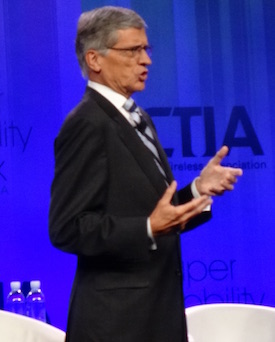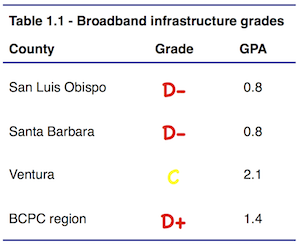Industry asks appeals court to reconsider broadband common carrier rules

Politics? Moi?
The next round of legal challenges to the newly upheld decision to treat broadband as a common carrier service have been filed. Alamo Broadband, AT&T, the Cellular Telephone Industries Association (CTIA), the National Cable Television Association (NCTA), TechFreedom and the U.S. Telecom Association (USTA) are asking the federal appeals court in Washington, DC to reconsider its earlier ruling and have all eleven of its active judges re-hear the case, instead of just the three that heard it earlier.… More


![By Taken by fir0002 | flagstaffotos.com.au Canon 20D + Canon 70-200mm f/2.8 L (Own work) [GFDL 1.2 (https://www.gnu.org/licenses/old-licenses/fdl-1.2.html)], via Wikimedia Commons](https://www.tellusventure.com/images/2016/7/monopoly_board.jpg)
![By Mike Schinkel from Atlanta, GA, USA (Life Preserver Uploaded by Navigans) [CC BY 2.0 (https://creativecommons.org/licenses/by/2.0)], via Wikimedia Commons](https://www.tellusventure.com/images/2016/7/life_preserver.jpg)



![By Sarah Stierch (Own work) [CC BY 4.0 (https://creativecommons.org/licenses/by/4.0)], via Wikimedia Commons](https://www.tellusventure.com/images/2016/7/road_kill.jpg)
![By Jon Sullivan [Public domain], via Wikimedia Commons](https://www.tellusventure.com/images/2016/7/santa_monica_beach.jpg)
![By Anders (Own work) [Public domain], via Wikimedia Commons](https://www.tellusventure.com/images/2016/7/mobile_phone_evolution.jpg)